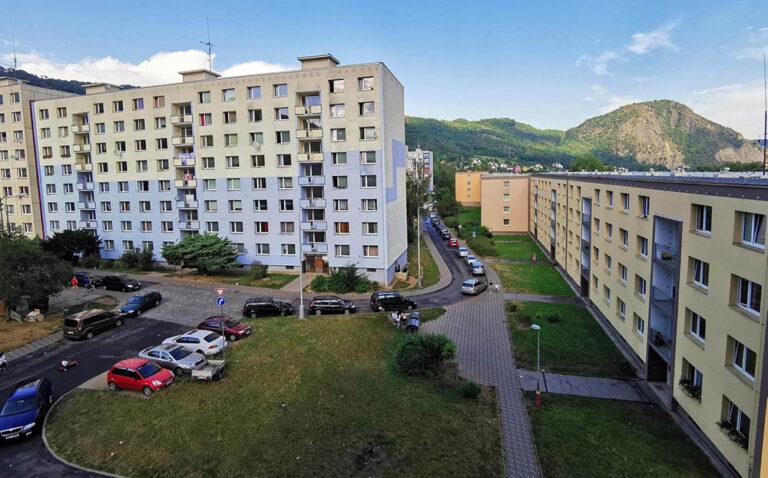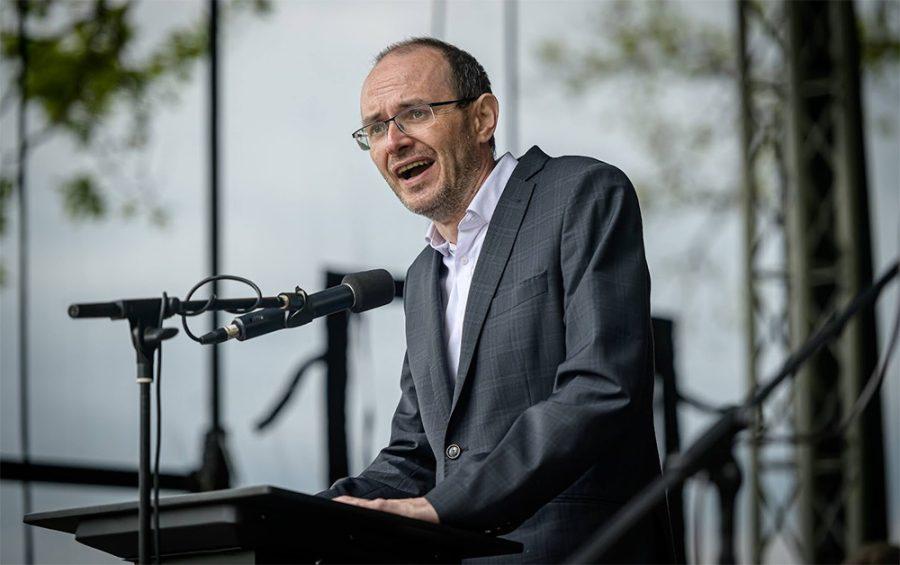Roma in the Czech Republic's Ústecký Region are safer today, but their social situations are worse, according to activists and regional politician

Romani people residing in the Czech Republic's Ústecký Region may not be facing racially-motivated violence from extremist groups as often as they used to, but their situation remains complex. They frequently encounter discrimination on the housing market, for example.
Such tenants pay rents which are well above market value for apartments in very poor shape. Activists Miroslav Brož and Jozef Miker, who is Romani, informed the Czech News Agency (ČTK) of that fact.
Karolina Žákovská, chair of the Committee for National Minorities at the Ústecký Regional Assembly, agrees with that assessment. The ultra-right Workers Social Justice Party (Dělnická strana sociální spravedlnosti – DSSS) used to hold protests against Romani people throughout the region.
In Duchcov, for example, anti-Roma marches were held repeatedly. An attack committed by Romani people on a non-Romani married couple in May 2013 was the pretext.
Protests against the Romani minority were also repeatedly held in the Šluknov Foothills. After they began, the protests continued over an assault committed by a group of Romani people in Varnsdorf after which a woman died.
“The situation [now] is a bit better than it used to be because the older people are leaving and there are not as many racists in today’s younger generation,” Miker said. “I believe that after some time, racism will almost completely disappear.”

Despite the fact that racially-motivated assaults against the Romani community are declining, according to those interviewed, the inclusion of Roma into society is more difficult today than it ever has been. “The situation, for example, in the Předlice quarter of Ústí nad Labem is worse than it was 10 years ago,” said Brož, who aids impoverished Romani people.
Many apartment buildings there which are mostly occupied by members of the Romani minority are unfit for human habitation. Some units don’t even have their own toilets and families from more than one unit have to share a single toilet in the corridor, said Brož.
“We know that if a Romani man calls a real estate agent in response to an advertisement and says his name is, for example, Demeter, the conversation ends there. Nobody will investigate whether he’s a respectable person or not,” said the activist, who asserts that most Roma have no choice but to keep living in buildings that are falling apart and not maintained by their owners.
The demand for rental housing is high among Roma. However, the number of landlords willing to rent to them is small, and they charge exponentially higher rents for that reason.
“They have to live in the ghetto, but naturally they don’t want to,” Brož said. In his view, another problem is the debts encumbering people in socially excluded localities.
If such people were to find formal employment, their wages would be attached by collections agents and they would then have no money left over to pay their rent. They therefore prefer to work informally without any kind of contract with their employers, the activist said.

In addition to the problems with debts, with the employment problems related to them and with housing, the problem of pupils and students dropping out of school persists in the region, says Žákovská. “All these factors create a vicious circle that pushes many Romani families into permanent material distress, and the traffickers in poverty leech off of them, and it is practically impossible for the Roma to extricate themselves from this situation through their own efforts,” said the chair of the Committee for National Minorities at the Ústecký Regional Assembly.
According to Žákovská, the dignity of these people is being fundamentally impacted, and their children’s futures are being influenced. “The concentration of impoverished Romani families in so-called socially excluded localities also creates problems for municipalities and further intensifies prejudices and antigypsyism among the majority population,” she said, adding that it will take a long time to correct the current state of affairs and that such a correction cannot ever happen without effective support from both the state and the local authorities.